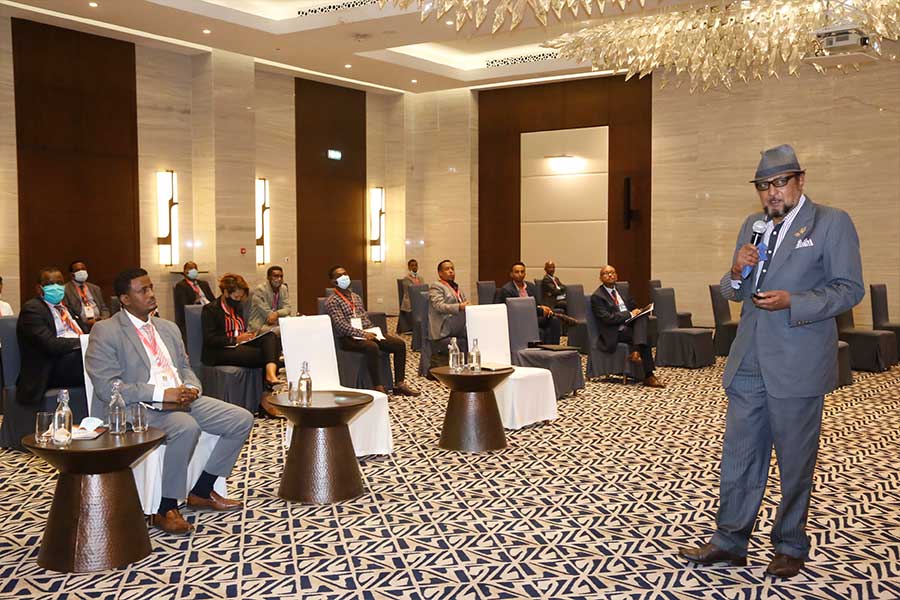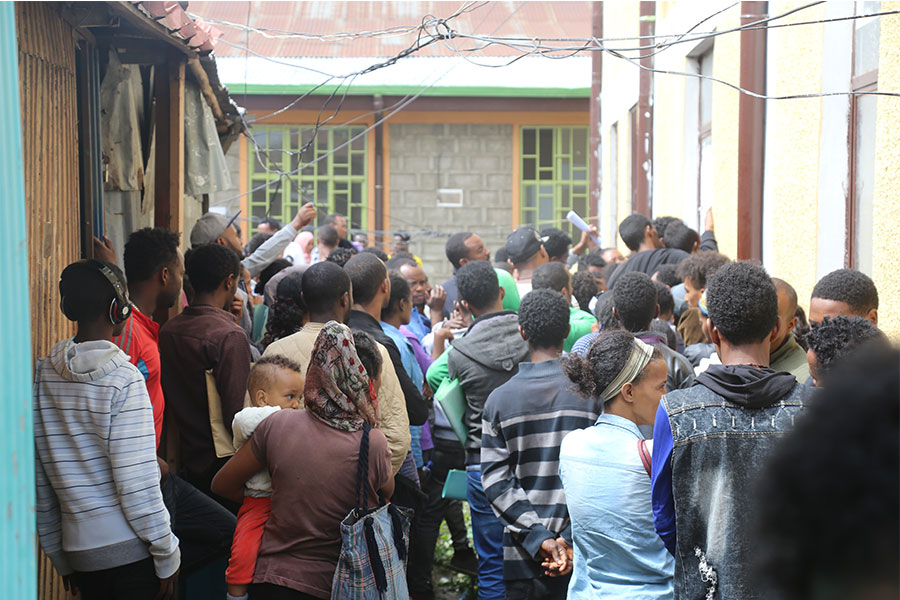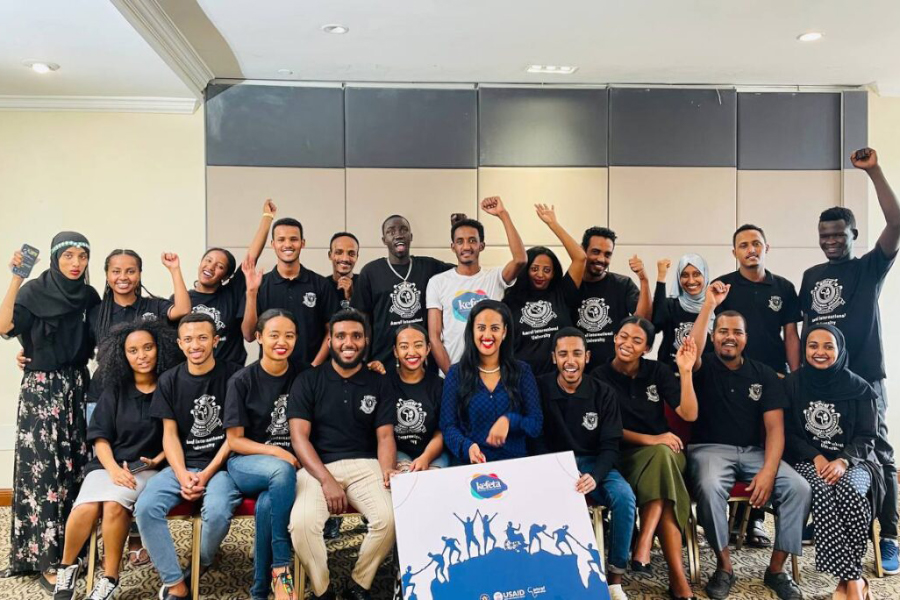
Commentaries | Dec 10,2018
Oct 31 , 2020
By Christian Tesfaye
The all-consuming worry in Ethiopia today is the threat of violence as political tensions persist across the country. It is distressing, evidently. It is above personal and professional matters, above and beyond the self or even the community. For some, perhaps for many, such national trauma is a matter of sanity. It takes nothing less than great personal strength to push on, to see the light at the end of the tunnel at this depressing time.
But such worry has also made us forget something. Our political problems may be a clear and present danger, but few seem to point out how threatening the distant future is as well.
This has to do mainly with our booming young population. When this is taken into consideration, the long-term prospects of political stability start to look all the more ambivalent.
First, some figures. Ethiopians make up for well over a percentage of the world population. At a 2.5pc population growth rate, we are adding about three million people annually to share more of the resources that we have. Each one of these millions of people added annually will require schooling, health services, shelter and feeding. At least for 18 years, they will consume these goods and services without being productive.
After that, they slowly become adults that need jobs, qualify for housing and develop political interests. They will continue to be a strain on socio-political and economic resources and infrastructure, just like most of us are today. Fortunately, hopefully, by their 20s, they will become productive members of society that will give back at least as much as they take.
But what happens if they cannot become productive? What happens if their energies and interests are not focused where they could make use of them?
Easy. They become destructive. They have energy to expend, and they will expend it somewhere, somehow. It could be abusing psychoactive drugs or buying into political radicalism. They are at an age of sexual maturity, in biological terms, and this entails certain behaviours that make them more prone to acts they may regret later.
For the most part, there is little in our current economic circumstances to entail that this is avoidable. Unemployment and underemployment are no longer a surprise, and millions suffer from them as we speak. But the challenge of the youth is too deep and broad that the future is bleak even to those that we would consider relatively well off.
The gross domestic product (GDP) per capita in Ethiopia has reached around 1,000 dollars. Let us consider an Ethiopian that lives on five times that amount, which would come to about 15,000 Br a month based on the formal exchange rate. In the last fiscal year, there was an average inflationary rate of 20pc. The same amount of money would thus retain just about 80pc of its value within a year.
What such an inflationary rate entails, in the face of an average of an eight percent savings rate, is that putting money in the bank is not ideal. It is not economically rational. If one saves, indeed, it would have to be to invest it as soon as possible.
That investment could be to acquire assets such as vehicles or houses that do not depreciate as fast. Unfortunately, both increase in value faster than inflation; thus our friend that earns a net of 15,000 Br a month will never have a chance of catching up. It is possible to get a loan, but at an average lending rate over 14pc, this is going to be prohibitive with the income that our friend currently has.
Pretty much the same logic applies to any sort of investment that may be made in possible businesses. A high lending rate and the costs of entry to almost any kind of business make it impossible for our friend to catch any break.
Sure he can start small, in a parent’s garage on a business that costs just a couple of thousand Birr a month and just one labourer, but how many of those do actually succeed without meaningful capital backing?
Our friend will not make it unless a family member or luck come to the rescue. With economic opportunities - including saving – this sparse, the alternative to upward social mobility is a loss of hope. It creates the feeling that the mountain is too steep to climb, no matter one’s efforts.
Hopelessness usually leads to one of two things. Substance abuse is one. It offers a temporary release of dopamine that alleviates the psychological pain that is felt but will have destructive long-term health impacts. The other alternative is to put one's energy into changing the politico-economic system that is perceived to be a barrier to one's economic advancement. This is revolution.
If a person that earns five times the national income per capita feels they cannot climb the social ladder through their own effort, imagine the desperation that will be felt by the millions of underemployed and unemployed in Ethiopia? Now, apply the same logic and the socio-political headache this is going to create unless addressed by the time there will be over 170 million Ethiopians by 2050, with over half of that estimated to be of working age?
Taking the political and economic system that will not only absorb the growing population but incentivise it to become productive is a project that will take decades. It is an urgent matter that should be dealt with now.
Our obsession with our current state of politics – no doubt, worrying in itself – does not allow this. But we have no choice. The clock is ticking.
PUBLISHED ON
Oct 31,2020 [ VOL
21 , NO
1070]


Commentaries | Dec 10,2018

Radar | Jun 07,2025

Radar | Oct 17,2020

Agenda | Jul 09,2019

Radar | Apr 08,2023

Radar | Jul 06,2025

Radar | Aug 18,2024

Radar | Sep 29,2024

Radar | Dec 10,2022

Commentaries | Jul 27,2019

Photo Gallery | 174632 Views | May 06,2019

Photo Gallery | 164856 Views | Apr 26,2019

Photo Gallery | 155067 Views | Oct 06,2021

My Opinion | 136699 Views | Aug 14,2021
Editorial | Oct 11,2025

Dec 22 , 2024 . By TIZITA SHEWAFERAW
Charged with transforming colossal state-owned enterprises into modern and competitiv...

Aug 18 , 2024 . By AKSAH ITALO
Although predictable Yonas Zerihun's job in the ride-hailing service is not immune to...

Jul 28 , 2024 . By TIZITA SHEWAFERAW
Unhabitual, perhaps too many, Samuel Gebreyohannes, 38, used to occasionally enjoy a couple of beers at breakfast. However, he recently swit...

Jul 13 , 2024 . By AKSAH ITALO
Investors who rely on tractors, trucks, and field vehicles for commuting, transporting commodities, and f...

Oct 11 , 2025
Ladislas Farago, a roving Associated Press (AP) correspondent, arrived in Ethiopia in...

Oct 4 , 2025
Eyob Tekalegn (PhD) had been in the Governor's chair for only weeks when, on Septembe...

Sep 27 , 2025
Four years into an experiment with “shock therapy” in education, the national moo...

Sep 20 , 2025
Getachew Reda's return to the national stage was always going to stir attention. Once...

Oct 12 , 2025
Tomato prices in Addis Abeba have surged to unprecedented levels, with retail stands charging between 85 Br and 140 Br a kilo, nearly triple...

Oct 12 , 2025 . By BEZAWIT HULUAGER
A sweeping change in the vehicle licensing system has tilted the scales in favour of electric vehicle (EV...

A simmering dispute between the legal profession and the federal government is nearing a breaking point,...

Oct 12 , 2025 . By NAHOM AYELE
A violent storm that ripped through the flower belt of Bishoftu (Debreziet), 45Km east of the capital, in...